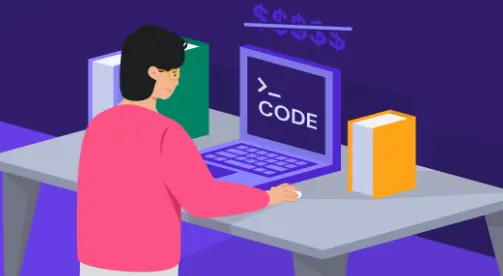Code Your Way to the Future: A Guide to Learning Coding Online
The digital age demands digital skills. Coding, once an arcane art, is now a valuable asset in diverse fields. But where do you begin if you’re interested in learning to code online? Fear not, aspiring programmers! This blog unveils a roadmap to navigate the vast landscape of online coding resources.
Finding Your Path: Choosing the Right Language
The first step is choosing a coding language. Consider your goals – do you want to build websites, create mobile apps, or delve into data science? Here’s a glimpse into popular options:
-
Web Development: Languages like HTML, CSS, and JavaScript are the building blocks of websites. Python and PHP are also popular choices for back-end development.
-
Mobile App Development: Swift for iOS app development or Java/Kotlin for Android development are commonly used.
-
Data Science: Python and R are leading languages in data science, with applications in machine learning and artificial intelligence.
A Plethora of Platforms: Where to Learn
Once you’ve chosen your language, explore the abundance of online learning platforms:
-
Free Resources: Websites like FreeCodeCampand Khan Academy offer free coding courses and tutorials. These platforms are a great starting point for beginners.
-
Interactive Learning: Platforms like Codecademy and DataCamp provide interactive coding challenges and gamified learning experiences, making the process engaging and fun.
-
Structured Learning: Online course providers like Coursera, and Udacity offer comprehensive coding boot camps and paid courses from universities and industry experts. These can provide a more structured learning path.
Beyond the Courses: Supplemental Resources
Complement your online courses with these resources:
-
Coding Communities: Online forums like Stack Overflow and communities on platforms like Reddit offer invaluable support and allow you to connect with other learners and professional programmers.
-
Practice Makes Perfect: Coding is a hands-on skill. Regularly practice what you learn by working on personal projects or contributing to open-source projects on platforms like GitHub.
-
Books and Tutorials: Supplement your online learning with coding reference books and tutorials. These resources can provide in-depth explanations and serve as a reference guide as you progress.
Learning to code online requires dedication and consistent effort. But with the plethora of resources available and a commitment to practice, you can unlock a world of opportunities in the digital landscape.
Bonus Tips:
-
Set Realistic Goals: Don’t aim to become a coding master overnight. Start with small, achievable goals and gradually build your skills.
-
Find a Learning Style that Suits You: Some learners prefer video tutorials, while others thrive with written instructions. Explore different formats to find what works best for you.
-
Don’t Get Discouraged: Learning to code can be challenging. Encountering bugs and errors is inevitable. Embrace the challenges, troubleshoot, and seek help from online communities when needed.
-
The Journey Never Ends: The tech landscape is constantly evolving. Embrace lifelong learning and stay updated with the latest trends and advancements in your chosen field.
With the right approach and dedication, your online coding journey can empower you to create, innovate, and become an active participant in the digital world. So, dive in, code your way to the future, and transform your potential!


Comments are closed, but trackbacks and pingbacks are open.